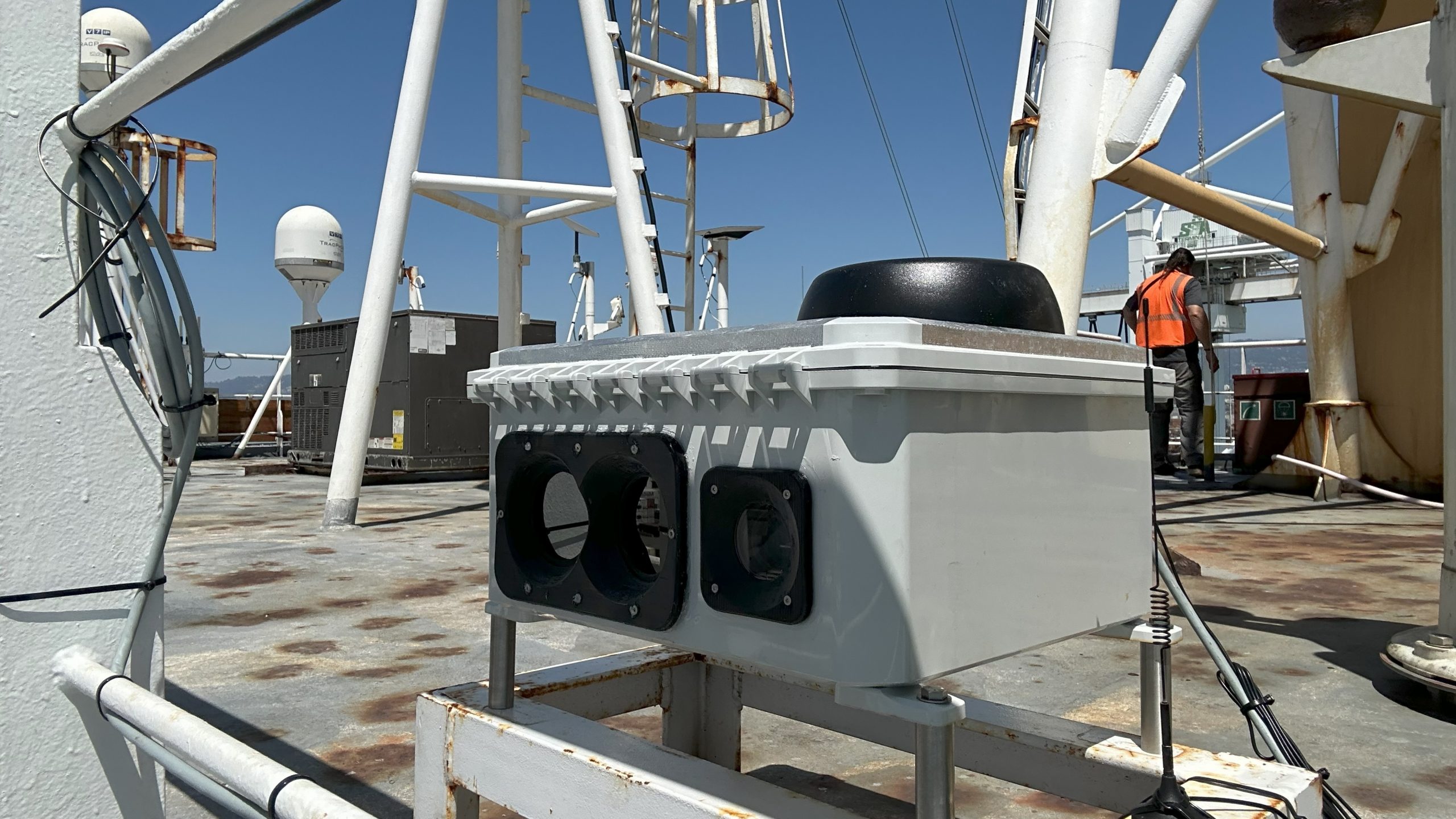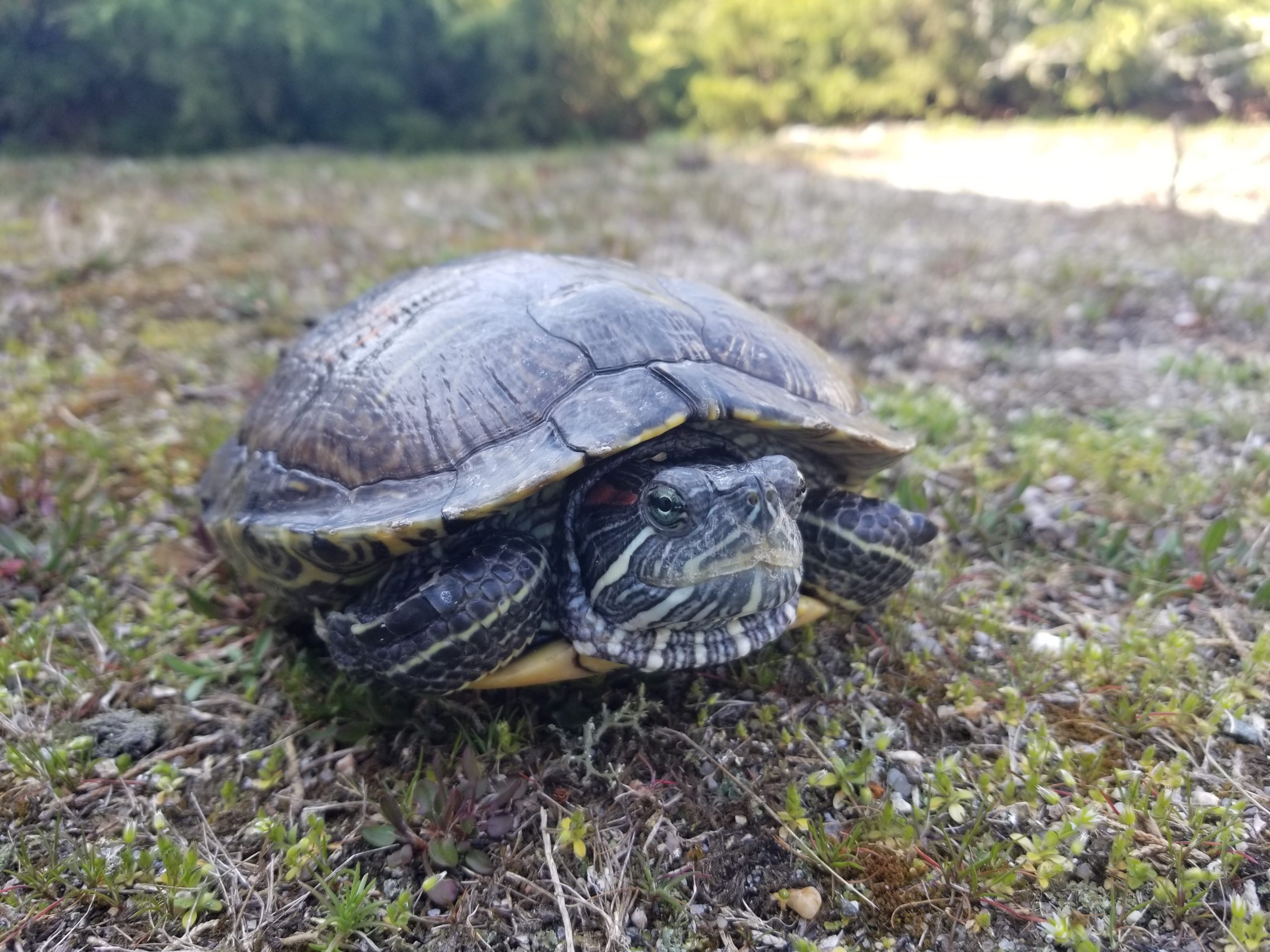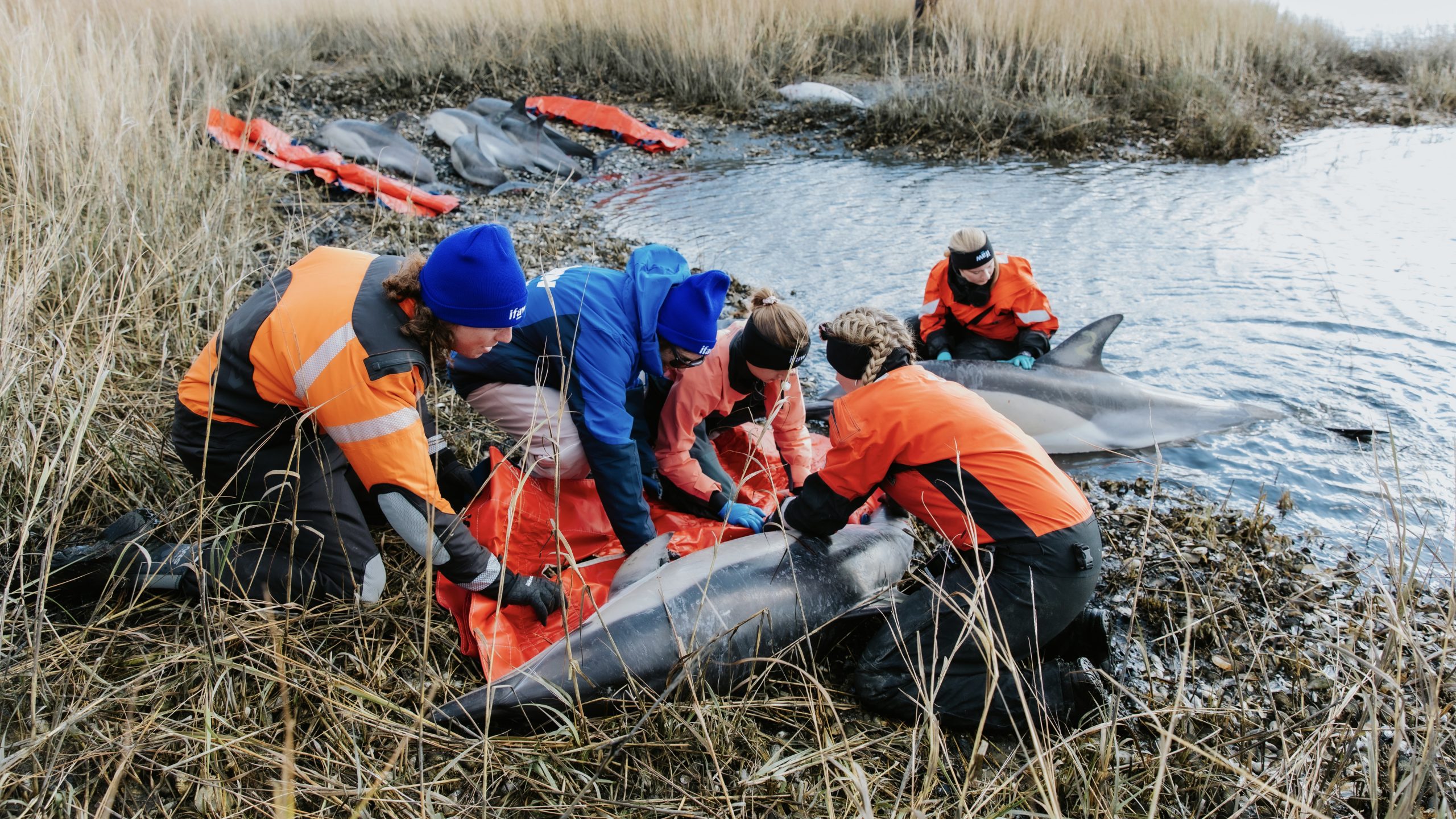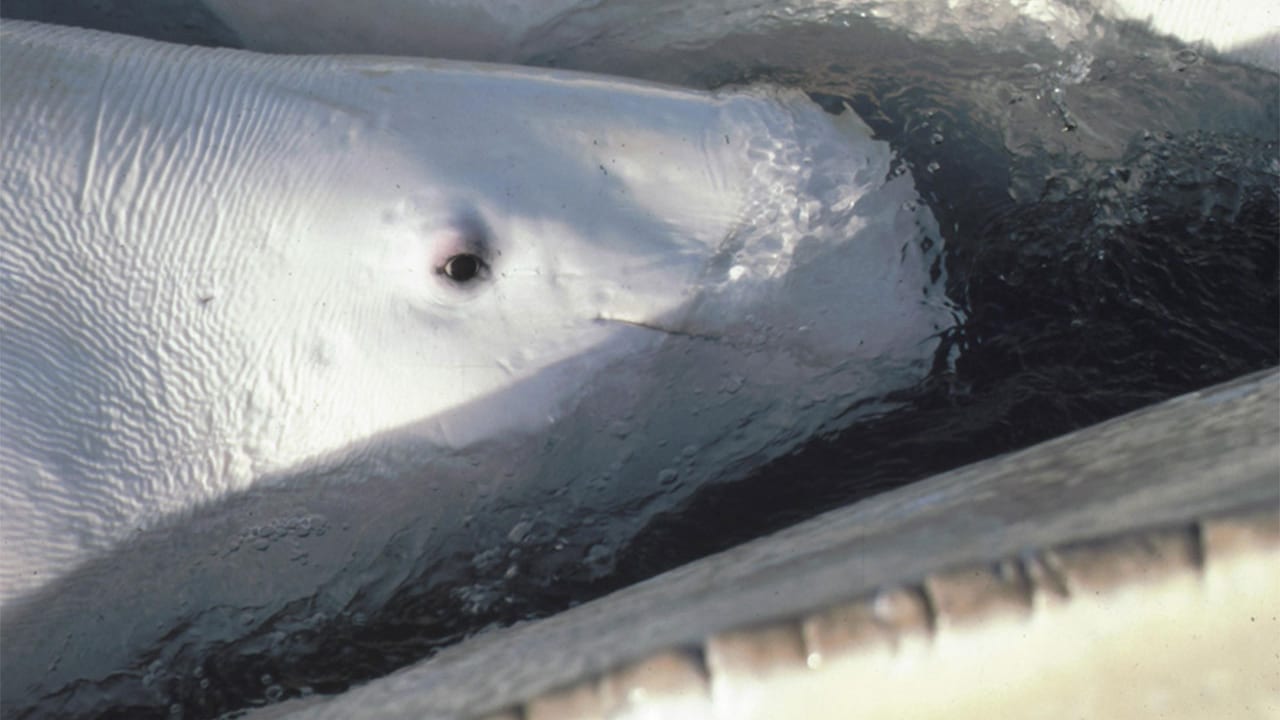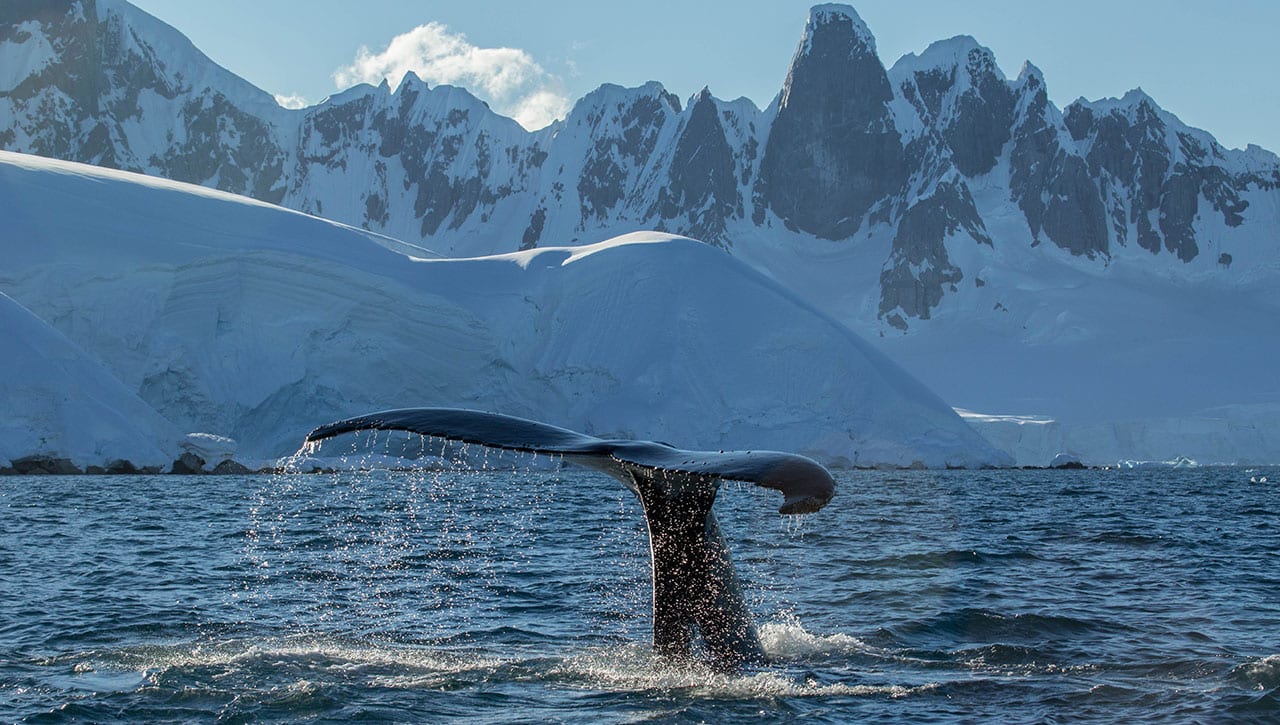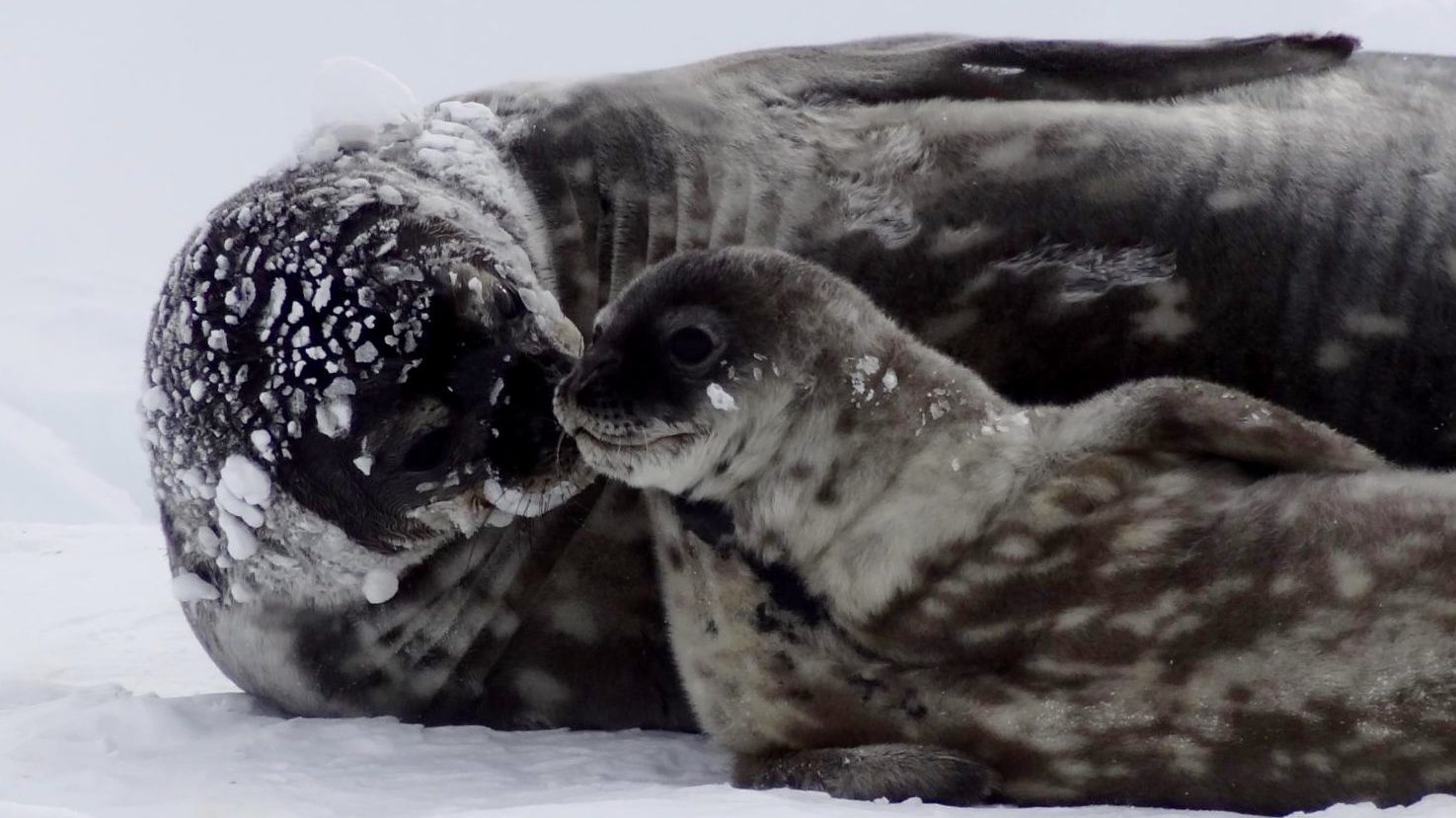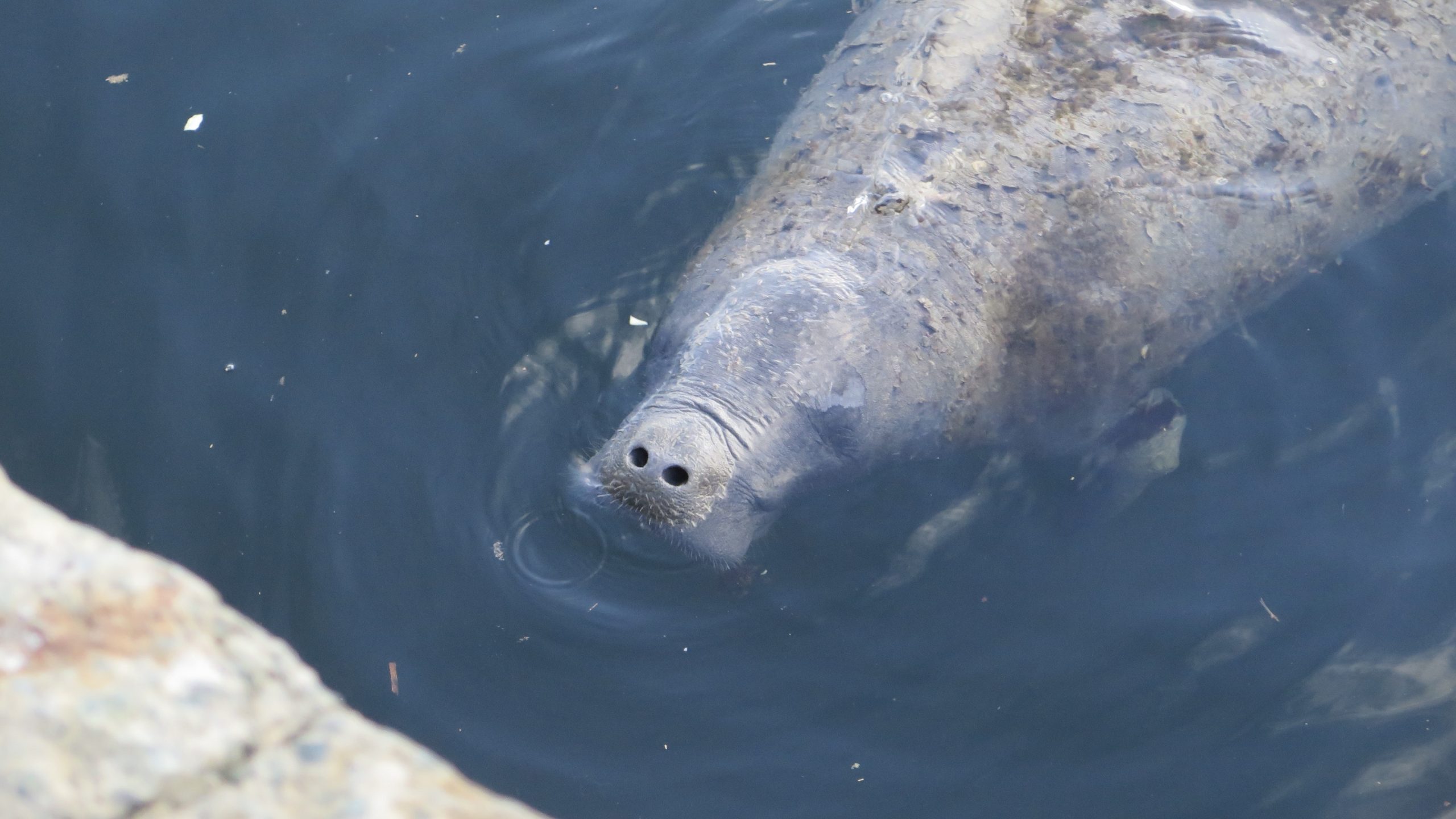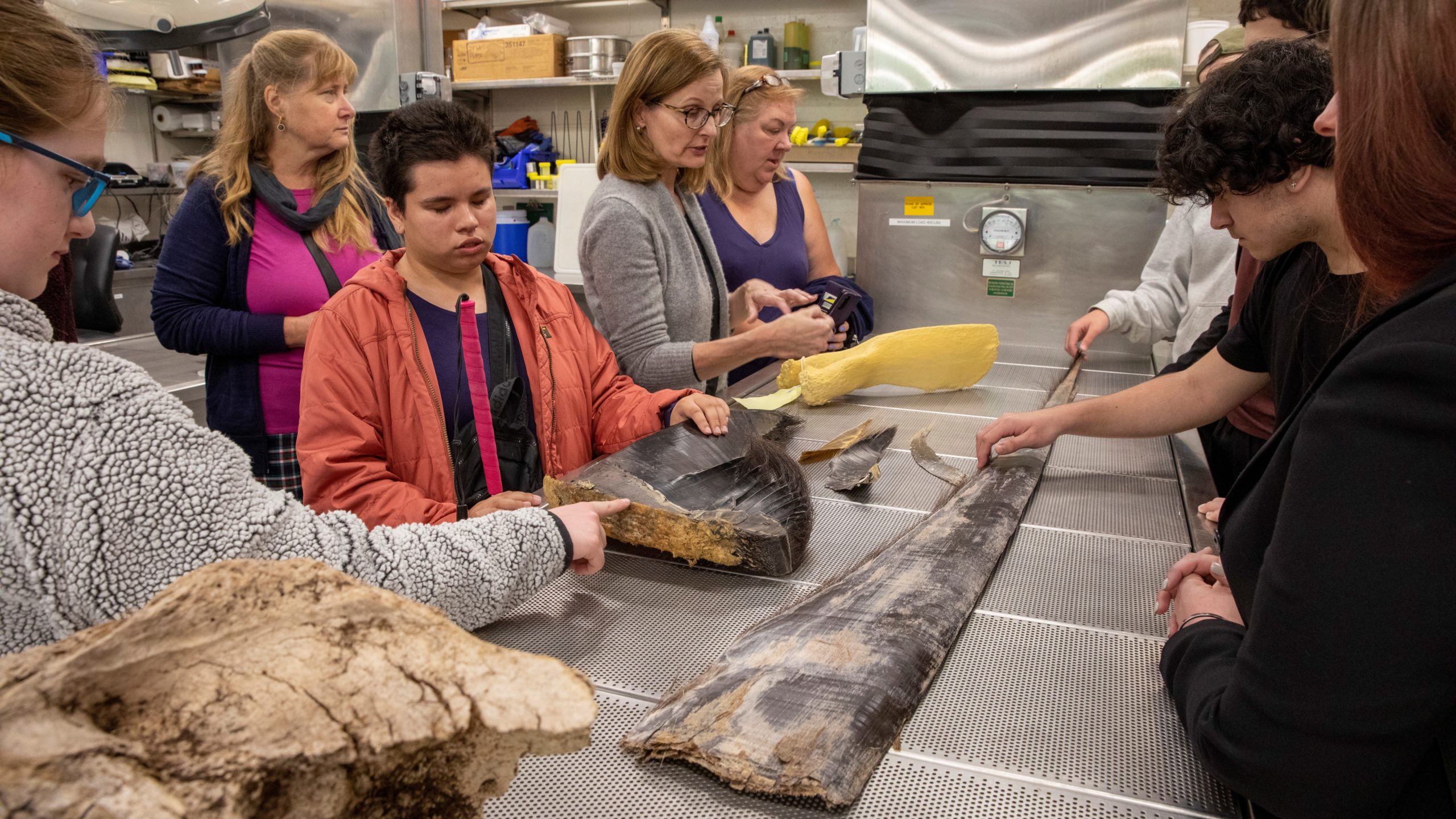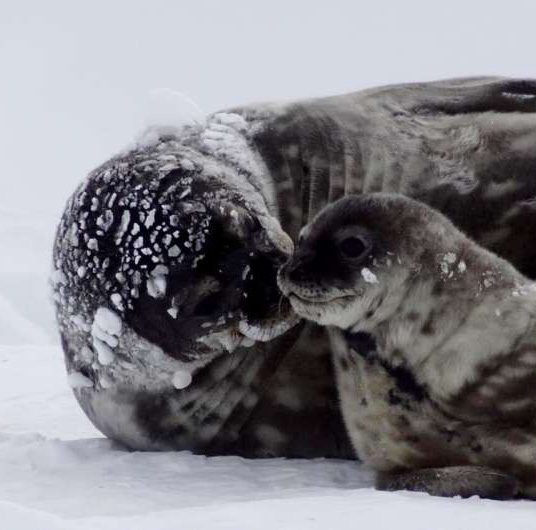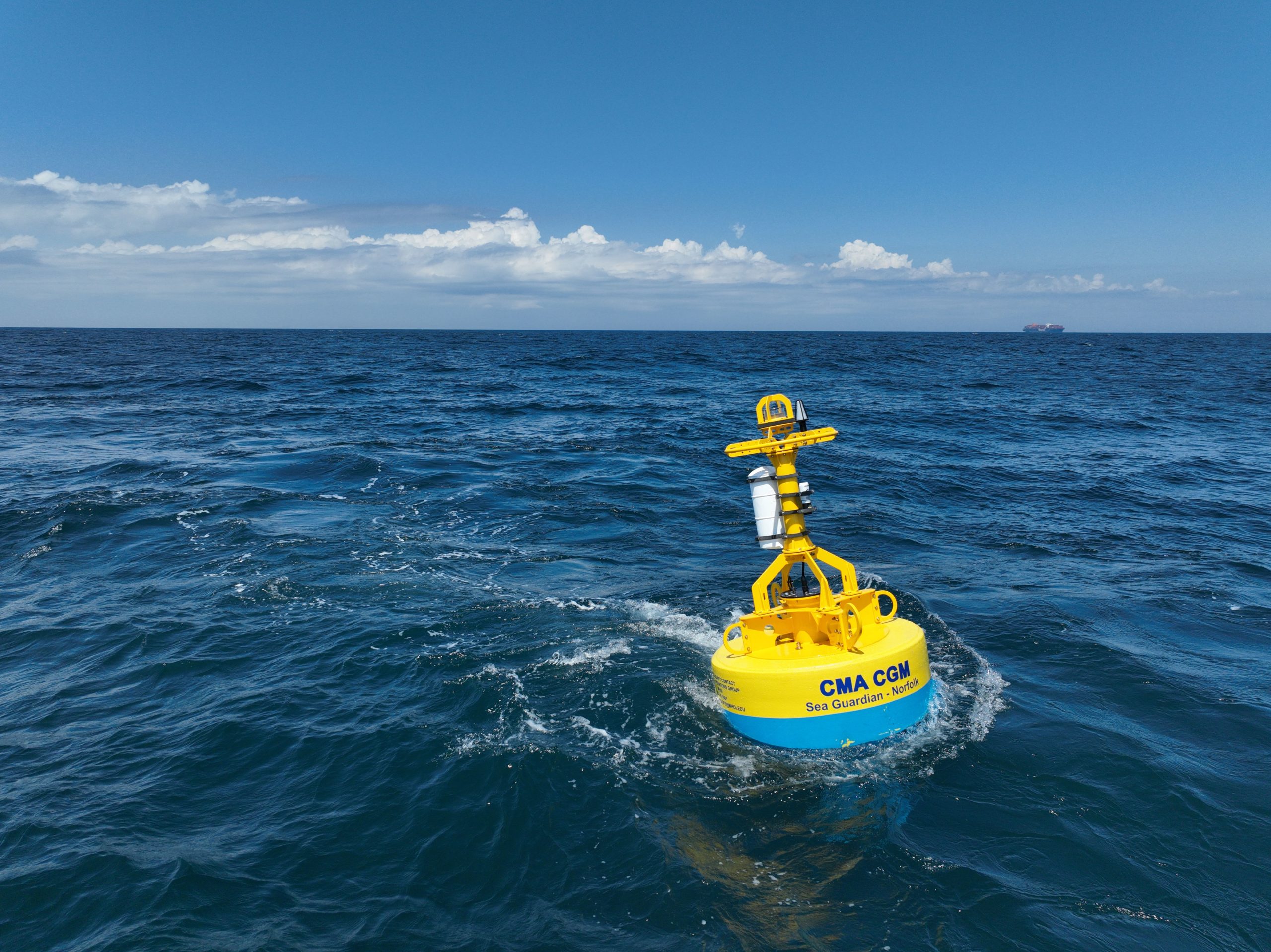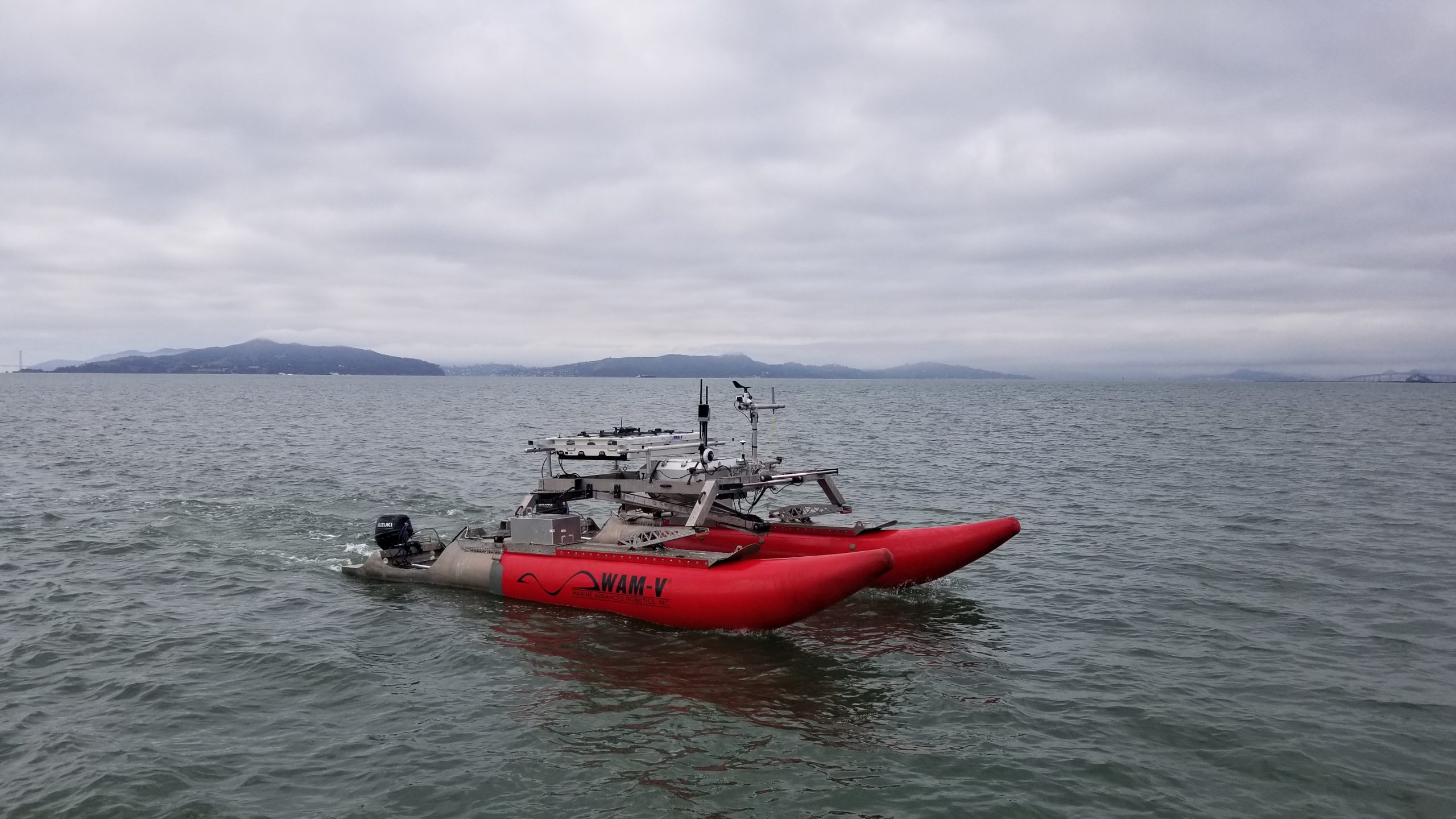News Releases
Ship-mounted camera systems increase protections for marine mammals
This technology uses thermal imaging to detect a whale’s body or spout and provides real-time information on their distance and bearing from a vessel.
Read MoreWHOI collaborates with CMA CGM to increase protections for marine mammals
A collaboration between Woods Hole Oceanographic Institution (WHOI) and the CMA CGM Group, a world leader in shipping and logistics, aims to increase whale detection efforts along the U.S East Coast, particularly for North Atlantic right whales, and reduce the potential for ship strikes along critical shipping routes.
Read MoreStudy Examines How Diving Marine Mammals Manage Decompression
How do marine mammals, whose very survival depends on regular diving, manage to avoid decompression sickness? Do they, indeed, avoid it? A workshop held by WHOI’s Marine Mammal Center brought together the world’s experts in human diving and marine-mammal diving physiology to discuss the issue of how marine mammals manage gas under pressure.
Read MoreSkip This Cocktail Party: Contaminants in Marine Mammals’ Brains
The most extensive study of pollutants in marine mammals’ brains reveals that these animals are exposed to a hazardous cocktail of pesticides such as DDTs and PCBs, as well as…
Read MoreWhere Currents Collide and Marine Mammals Gather
Cape Hatteras, where the Gulf Stream veers off the continental slope into the deep ocean and heads toward Europe, will be the site of two intensive surveys in August 2004…
Read MoreWoods Hole Oceanographic Institution-led study explores effects of noise on marine life
New research shows turtles can experience temporary hearing loss from an excess of underwater noise. This high volume of sound, referred to as underwater noise pollution, can be caused by passing ships and offshore construction. These preliminary findings were part of a Woods Hole Oceanographic Institution-led study that is being presented at the 2022 Ocean Sciences Meeting..
Read MoreHistoric Marine Mammal Sound Archive Now Available Online
Over his more than 40 years as a scientist at WHOI, William Watkins led the effort to collect and catalog the vocalizations made by marine mammals. Now, a team from WHOI has launched the online, open access William Watkins Marine Mammal Sound Database.
Read MoreStudy Pumps Up the Volume on Understanding of Marine Invertebrate Hearing
A new study by researchers at Woods Hole Oceanographic Institution and their colleagues examined behavioral responses to sound by cuttlefish, a type of shell-less mollusk related to squid and octopi. The study is the first to identify the acoustic range and minimum sound sensitivity in these animals. Their findings, published in the Journal for Experimental Biology, can help decision makers and environmental managers better understand the impacts of noise in the ocean.
Read MoreNew Marine Mammal Center Formed at Woods Hole Oceanographic Institution
The Woods Hole Oceanographic Institution (WHOI) has announced the formation of a new center for marine mammal research and conservation studies. The center combines scientific expertise, state-of-the-art facilities, and technological…
Read MoreNew Whale Detection Buoys Will Help Ships Take the Right Way through Marine Habitat
Researchers from the Woods Hole Oceanographic Institution (WHOI) and the Cornell Lab of Ornithology have teamed up with an international energy company and federal regulators to listen for and help protect endangered North Atlantic right whales in New England waters.
Read MoreMarine CSI: Solving the Mysteries of Marine Mammal Strandings
A 12-foot Cuviers beaked whale (Ziphius cavirostris) found stranded on a beach south of Boston in early April is a rare event in New England, although strandings of pilot whales…
Read MoreGroundbreaking research sheds light on how whales and dolphins use sound
Differences in brain structure between echolocating and non-echolocating marine mammals offers insight into auditory processing
Read MoreHearing Tests on Wild Whales
Scientists published the first hearing tests on a wild population of healthy marine mammals. The tests on beluga whales in Bristol Bay, AK, revealed that the whales have sensitive auditory systems and showed less age-related hearing loss than is expected.
Read MoreMonitoring Bacteria on Whale Skin
Just like with humans, the skin on marine mammals serves as an important line of defense against pathogens in their environment. A new study sheds light on the skin microbiome – a group of microorganisms that live on skin – in healthy humpback whales, which could aid in future efforts to monitor their health.
Read MoreScientists Identify Core Skin Bacterial Community in Humpback Whales
In a paper published in the open access journal PLOS ONE, researchers at Woods Hole Oceanographic Institution (WHOI) and colleagues identified a core skin bacterial community that humpback whales share across populations, which could point to a way to assess the overall health of these endangered marine mammals.
Read MoreWoods Hole Oceanographic Institution and CMA CGM expand their partnership
CMA CGM, which has long been committed to preserving biodiversity through multiple initiatives in the U.S. and worldwide, will support two key WHOI projects
Read MoreFecal samples from bowhead whales link ocean warming to rising algal toxins in Arctic waters
Filter-feeding whales sample the Arctic food web, tracking decades of change
Read MoreStudying how seals adapt to extreme environments could lead to benefits in human reproductive health
What can wild animals teach us about human reproduction?
Read MoreWHOI and Brazil-based NGO partner to save West Indian manatee
A new study shines light on the role of currents in marine mammal conservation
Read MorePerkins School for the Blind Visit Woods Hole Oceanographic Institution
On Saturday, May 11, WHOI welcomed students from Perkins School for the Blind’s Outreach Program.
Read MorePerkins School for the Blind visits WHOI
Students in Perkins School for the Blind’s Outreach Program recently spent the day at the Woods Hole Oceanographic Institution, part of an annual program connecting students engaged in STEM learning through sound and touch, with WHOI oceanographers and researchers.
Read MoreWeddell seal moms sacrifice to provide for their pups
Seal mothers dramatically limit diving and foraging while lactating to provide more iron to their young
Read MoreWHOI and CMA CGM Group deploy acoustic monitoring buoy near Norfolk, Virginia
Woods Hole Oceanographic Institution (WHOI) and The CMA CGM Group, a global player in sea, land, air, and logistics solutions, have deployed an acoustic monitoring buoy 33 miles off the coast of Norfolk, Virginia. A second buoy is slated for deployment off the coast of Savannah, Georgia in the coming weeks.
Read MoreDOE Funding will Support WHOI Research to Support Sustainable Development of Offshore Wind
Woods Hole, MA — The Woods Hole Oceanographic Institution (WHOI) has received $750,000 in funding from the U.S. Department of Energy (DOE) to develop next‐generation autonomous robotic technology for environmental…
Read More
